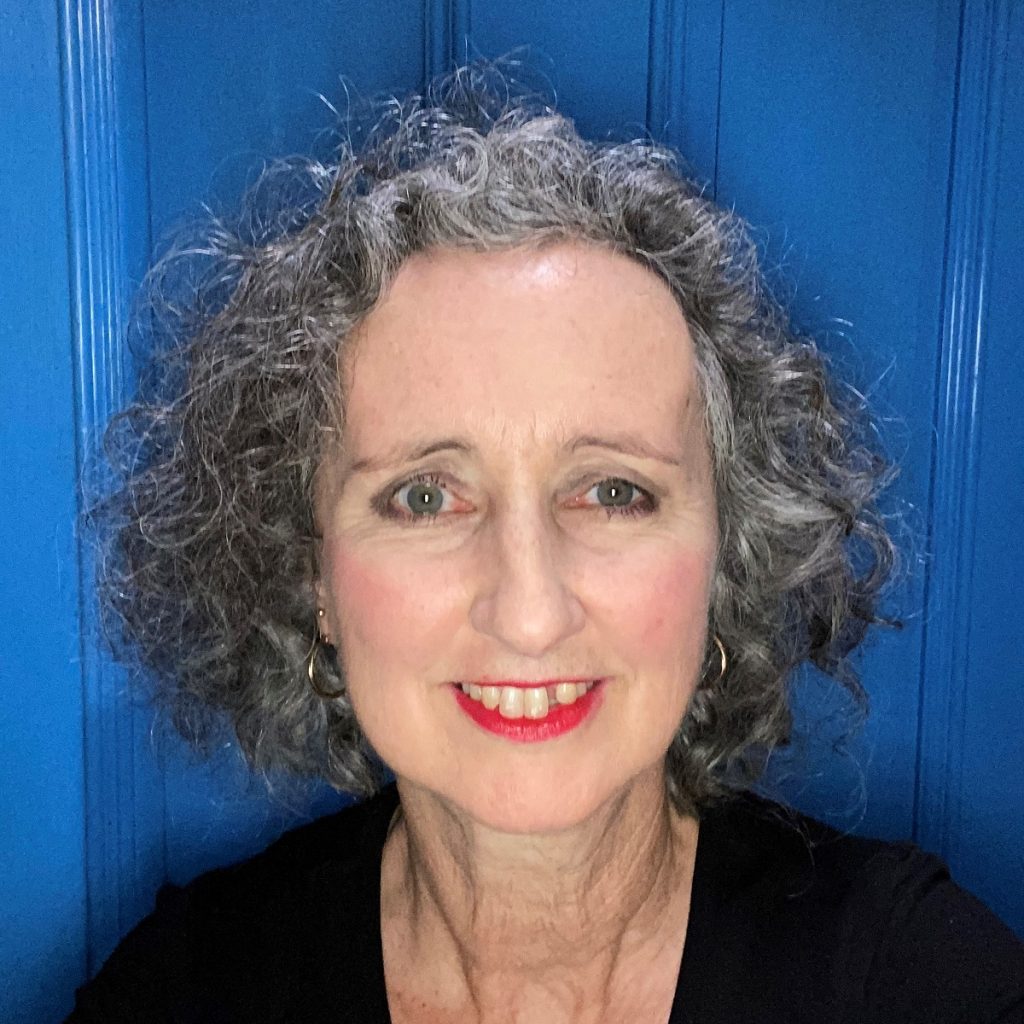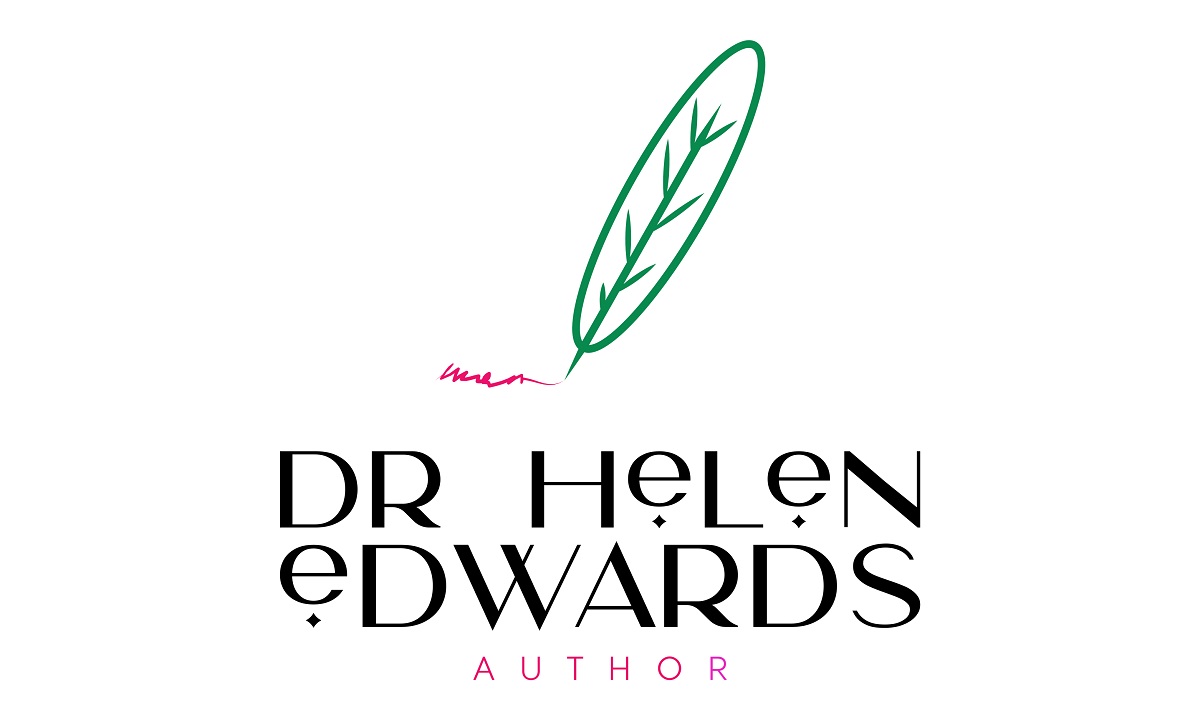Writer Wellbeing: Veronica Strachan

Veronica Strachan lives in Gisborne, at the foothills of the Macedon Ranges. She writes as Veronica Strachan, and as V.E. Patton, for her fantasy and scifi books. She began writing as a child, stopped in high school, and re-started at age 56. She is sharing her journey as a writer and some of her tips on writer wellbeing.
What drew you to writing? Can you share a story about when you first knew you wanted to write?
I love the power words have to change your life, to draw you into other worlds, to make you think and feel and believe. I first knew as a child that I wanted to write, but I was drawn away from it, by bullying, and by life. I wrote and illustrated my first book, Pipkin the Pixie, using a typewriter and pale pink typing paper. My older sister then pinched it to hand in for an assignment she was doing. I was gutted.
What is your favourite genre of book to read and do you have any favourite authors?
My favourite genre is hopepunk, wrapped in a speculative fiction wrapper, of any kind. I love strong female characters who advocate for those that need it, using everything at their disposal, discovering things about themselves, and eventually finding resolution, preferably positive. Fave authors: Sara Douglass, Traci Harding, Ursula Le Guin, JRR Tolkien, Robert Jordan, Julian May, Jane Austen, Jasper Fforde, Gloria Steinem, Marianne Williamson, Steven Erikson, Kate Elliot, A.A Milne, Stephen Donaldson, Jay Kristoff & Amy Kaufman, Lindsey Buroker
Is writing your full-time gig? If not, what else do you do?
No, not full time. I’m a leadership coach and facilitator working mostly in the health sector.
Do you tend to write in isolation, or with others, or a combination?
I write mostly in isolation, although I have recently written an action adventure with another author I met on Twitter. I’ve also compiled and contributed to an anthology with another group of writers from Twitter the #6amAusWriters – that was fun!
What are the three hardest things about writing for you?
- Follow through – the first torrent of words is easy; the next, grammar, plot, and structure, I find more difficult.
- Editing is hard – the cut and thrust of shaping the story.
- And of course marketing – the process of getting your story out there in the world. Although I do enjoy the business process of writing, getting the numbers right, trying new avenues for sharing and selling my stories.
What are the three best things about writing for you?
- Getting lost in the story, finding the flow, and realising you’ve been at it for hours.
- Making up the book you’d like to read yourself.
- Listening to people who are as invested in your characters as you are. Watching the faces of little kids who read my picture books.
Do you write in a routine, or randomly?
A bit of both. The wee small hours of the morning before the house is up and before my brain fills with the ‘to do’ list, are my best times. Most weeks I can do this 4 or 5 times for 60-120 minutes. Then after lunch or just before dinner, I can often get another session in. It depends a little on my other work as a leadership coach, consultant, and facilitator. I work around my clients needs.
Are you a plotter, or a pantser, or a combination?
Definitely more of a pantser, which is completely different to all my project and change management training. That is all about planning, planning, and more planning! With my writing however, once the first rush of creativity has poured out, then I do some plotting and shuffling.
Do you have a place to write, or all over the place?
I have a home office all set up and prefer to write there. I have two large screens so that I can have the writing on one side and any editing or research tools and pages on the other. It also means I can keep the font fairly large as my near sight is not the best.
Do you connect with other writers online or in real life?
I’ve found some great writer friends online via Twitter – especially the #6amAusWriters group who meet most mornings to check in, encourage each other and celebrate any wins. I’m co-authoring another book with an author from Adelaide, who I met online. Some of the Melbourne writers have got together in real life for a catch up, and I have individually reached out to a couple of people and met them in real life for a cuppa and a chat. With online video conferencing, there are more opportunities to chat.
What are your dreams for your writing?
To write books that I enjoy and that others enjoy, and to make enough money to keep writing. I’d like to complete my fantasy series and my children’s picture book series, as well as an action adventure series, which is in the final stages of editing.
I’d also like to keep improving, keep learning, get better at telling my stories, try different genres, and get better at selling them. I’ve recorded an audio book version of one of my stories and hope to do others.
What are your current realities with your writing?
I’ve self-published 6 books since 2016, have 2 more almost complete manuscripts and another two thirds finished, which I hope to have published this year. I’m not interested in traditional publishing, and will continue to self-publish. I find it very satisfying to manage the end to end process.
Do you experience any mental health issues? And what you do to manage these things? How is writing connected to your mental health?
I find I’m more resilient and more tolerant of the mental rollercoasters of life as I age. While not diagnosed with any specific mental health issues, I know I am prone to dark periods, feeling flat, depressed, and lacking motivation. I’ve done a lot of self-reflection and discovery over the years, and spent a lot of time healing from the death of my second daughter Jacqueline Bree, who died at four years of age.
I mostly recognise my triggers, which are brought on by working too hard, too long, and spending too much time on my own. I have a tendency to push myself too hard and take on too many things at once.
My writing is an outlet for more positivity and creativity. It has the power to turn my mood up and give me a sense of fulfilment; to take me away from the mundane and grind of the everyday. This positivity can be whittled away if I spend too much time on the business of writing, rather than the writing itself.
I need to keep a check on what I eat, try to get more sleep and reconnect with friends out in the world. It all helps. I don’t send any of my work to publishers apart from a few short stories. A couple of these have been rejected as not suitable. It doesn’t particularly fuss me. I’m not tied to anyone’s expectations but my own.
Do you experience emotions such as self-doubt, imposter syndrome, fear of missing out, lack of confidence – if so, how often do you think and how do you deal with these emotions?
Self-doubt is an old friend, though less so these days. I’ve published 6 books and learnt so much about writing, that I feel like I am past the beginner stage in many areas, though still a long way to go in others.
Imposter syndrome, not so much. I felt this more when I was running hospitals and other people’s companies – how did I get there? Hard work, consistent learning, and a willingness to change and step up to challenging and difficult leadership.
Fear of missing out is more familiar and in part stems from being a member of a large family, with not much to spare as I was growing up, as well as tapping into the global awareness of the acquisatorial culture we live in. FOMO can also drive my over loading work list and have me signing up for too many courses.
I don’t find lack of confidence a concern. As I mentioned earlier, lots of self-reflection, self-discovery and continuous learning in the positivity and emotional intelligence sector, all keep me on track. It’s hard to quantify how often. It can get a bit seasonal if I have a long autumn and winter without many outings for clients and friend visits.
Self-doubt is probably the most regular, but is very contextually based and tends to make me want to learn and apply myself more – so it can be a motivator. FOMO, as noted, I have to be careful not to over commit and watch my cashflow. Sometimes I reach out to friends, but I’m more likely to reach for something to read, and to research and journal my way around and out of things.
Do you have support in your personal life – for your writing and your wellbeing?
My husband of thirty-five years is a fabulous support for both, as are a few close friends and my children. I do miss my older sister who was my go-to person since my mum died almost thirty years ago. My sister had a long struggle with breast cancer and died in January 2019.
Do you get regular exercise, eat well and get a decent sleep?
I do exercise every day, a combination of yoga, walking or running and some cross-training like cardio. I’ve always been a runner, and the regular endorphins are a must. I have a treadmill inside for the cold and rainy months, which gets a good workout. Diet wise, I’m a vegetarian and keep to gluten-free as I have an intolerance. We have generally good nutrition as my husband was diagnosed with Crohn’s disease a few years ago and we can’t be too slack. Decent sleep is much more elusive these days. It’s almost impossible to get more than a few hours in a row. Deep restful sleep is mostly a dream. I’ve taken to having an occasional nap during the day if I can.
Family time is incredibly beneficial, time with girlfriends, time out with my husband exploring, walking, travelling. Time in the garden is definitely beneficial. Writing is right up there too. It’s amazing to write something that other people will read and enjoy.
I could do with more sleep and a smaller mortgage!
Thank you for sharing so openly Veronica, there is so much gold in your words. You can connect with Veronica and find her books here:

Excellent interview. Really thoughtful questions and answers.
Thank you both.
A retired English Teacher here.
I’m sure there’s a lomg buried writer somewhere imside me.
thank you so much! You are a wonderful writer x